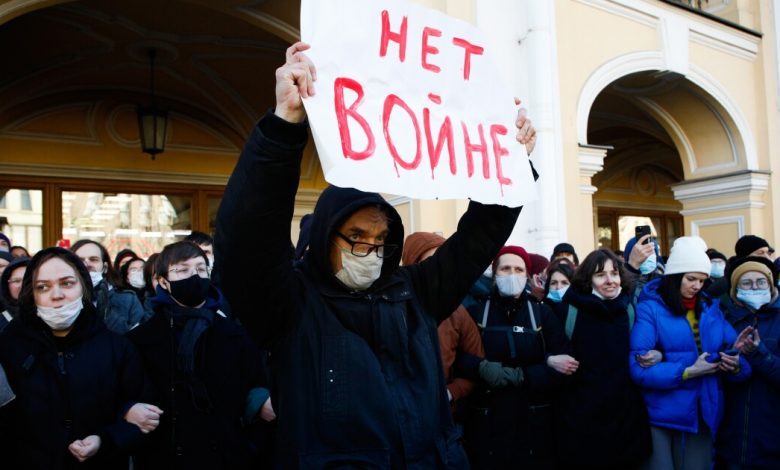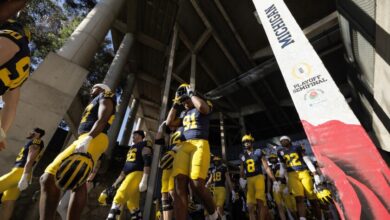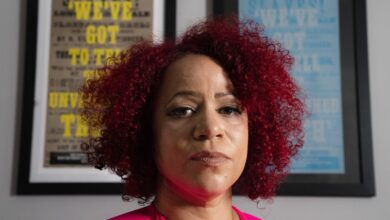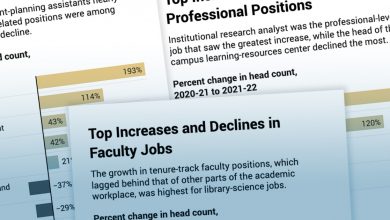U.S. Colleges Debate Whether to Sever or Sustain Ties with Russia

[ad_1]
Apple, Netflix, McDonald’s, General Motors — these American brands are among nearly 400 companies to announce they are pulling out of Russia in protest of its invasion of Ukraine.
Should American colleges do the same, cutting off joint research projects and student and scholarly exchange with Russia? Some already have. The Massachusetts Institute of Technology said it would dissolve its partnership with a Russian research university it helped found. Arizona’s Board of Regents ordered the state’s public colleges to end all collaborative work with Russian universities and to divest their pension, retirement, and foundation funds from Russia. edX, the online-course provider, said it would stop offering courses from Russian institutions.
Scholarly conferences to be held in Russia have been canceled, and some academic journals have said they would not publish papers from researchers at Russian institutions. Ukraine’s Ministry of Education and Science has called for an academic boycott of Russia.
Yet as leaders of American colleges condemn Russian aggression, the consequences of severing academic connections are under debate. Even during the Cold War, higher-education linkages between the West and the Soviet Union were never completely decoupled, as scholars maintained relationships across the Iron Curtain.
Breaking ties with Russia could end up penalizing one of the country’s most moderating forces, its professors. Thousands of Russian scientists have signed a letter opposing the invasion of Ukraine, although Vladimir Putin’s government has criminalized such criticism.
And calls to academically isolate a country run counter to the principles of global science and inquiry. That can make colleges’ calculations to pull out quite different from those of businesses with a focus on the bottom line. Within higher education, “there is this very longstanding value of scientific openness,” said Lisa Janicke Hinchliffe, a professor and coordinator for information literacy services and instruction at the University of Illinois at Urbana-Champaign.
But Roger C. Schonfeld, director of libraries, scholarly communication, and museums for Ithaka S+R, said that policy makers have already called into question the ideal of “globalized science,” pushing for restrictions on ties between American researchers and colleagues in China. While Schonfeld said it was probably premature to say “we’ve given up scientific openness,” the response to Russia could be another sign of a shift away from a tradition of global scientific collaboration.
In a blog post on The Scholarly Kitchen, Hinchliffe and Schonfeld note that the pace of scholarly decoupling from Russia was strikingly rapid. In Europe in particular, governments quickly ended research collaborations with Russia following the invasion of Ukraine.
By contrast, past academic boycotts — such as efforts to pressure South Africa to end apartheid or the boycott, divestment, and sanctions movement against Israel for its policy on Palestine — have unfolded over longer periods of time.
Robert Quinn, executive director of the Scholars at Risk Network, said those advocating academic boycotts need to consider what they hope to achieve by cutting ties. While Quinn said there could be “valid” reasons for boycotts, such as penalizing “complicity” in aggression or human-rights violations, they shouldn’t be undertaken to inflict collateral damage or to try to “punish people not involved in a violation to motivate them to act.” (Scholars at Risk does not have a formal policy on boycotts.)
Quinn said he is wary of far-reaching policies that hold all institutions or scholars responsible for their country’s actions. “I’m fearful of an overly elastic interpretation of complicity that could swallow all of academic freedom,” he said.
Such questions are complicated in Russia, where universities have lost autonomy and faced increasing political pressure under Putin. Shortly after Russia invaded of Ukraine, the rectors, or presidents, of leading Russian universities issued a statement supporting the attack.
Some U.S. colleges have opted for a blanket ban on engagement with Russian higher education. John Sharp, chancellor of the Texas A&M University system, sent a letter last week directing officials across its 11 campuses to “immediately dissolve all agreements with Russian entities, specifically those relating to academics, research, and intellectual property.” Among types of academic engagement he said should be ended were study abroad, visiting scientist positions, and cooperative research.
Other institutions are taking discrete actions. Syracuse University, for example, said it would eliminate endowment investments in Russia. While MIT quickly announced it was ending its partnership with Skolkovo Institute of Science and Technology, its largest institutional project in Russia, it is taking a deliberative approach to other work in or with the country. A group of senior administrators is reviewing all such projects on a case-by-case basis, a spokeswoman said. The review process continues, although the spokeswoman noted some collaborations have already been paused.
Experts said colleges could halt institutional partnerships with Russian universities while allowing ties between individual researchers to continue. Colleges could also take a closer look at the types of academic collaboration and be less willing to engage in research that could be seen as benefiting Russia’s economy or its national security.
In addition to distinguishing between institutions and individuals, Hinchliffe notes that many colleges and higher-education groups have framed their current decisions to pull back from Russia as a “pause” or “suspension,” leaving open channels for collaboration in the future. “I don’t think those are accidental uses of language,” she said.
A number of scientific organizations have tried to draw distinctions. The Association for Slavic, East European, and Eurasian Studies, together with the British Association for Slavonic and East European Studies and the American Association of Teachers of Slavic and East European Languages issued a joint statement opposing a ban on scholars’ participation in conferences or exchanges based solely on citizenship. Instead, the groups called for cutting ties with Russian institutions or academics who are “actively supporting the Russian war effort.”
But Danielle Lussier, an associate professor and chair of Russian, Central European, and Eurasian studies at Grinnell College, said the statement left open the question of whether to engage with individual scholars who have not spoken out against the war. Academic freedom at Russian universities has deteriorated in recent years; some institutions bar faculty members or threaten them with dismissal for public commentary on political or social issues. A new law would punish anyone who spreads “false information” about the invasion of Ukraine with up to 15 years in prison.
“Do we interpret scientists’ and scholars’ not taking an antiwar stance as complicity?” said Lussier, who has been a visiting professor in Russia. “I am personally struggling with that knowing what I know of free speech in Russia.”
Still, Igor Chirikov, a senior researcher at the Center for Studies in Higher Education at the University of California at Berkeley whose father came from Ukraine, noted that many Russian professors are openly opposing Russian aggression there. “They are speaking out at high risk to themselves,” he said, so it’s important that American academics back their efforts.
Before Chirikov came to Berkeley, he was a senior research fellow and a vice rector at HSE University Moscow, long seen as one of the most internationalized and selective institutions in Russia, and he had maintained an affiliate position with HSE after moving to California. But its rector was among the university leaders who signed the statement in support of the invasion. The day after the rectors’ letter was published, Chirikov sent in a letter of resignation.
[ad_2]
Source link






